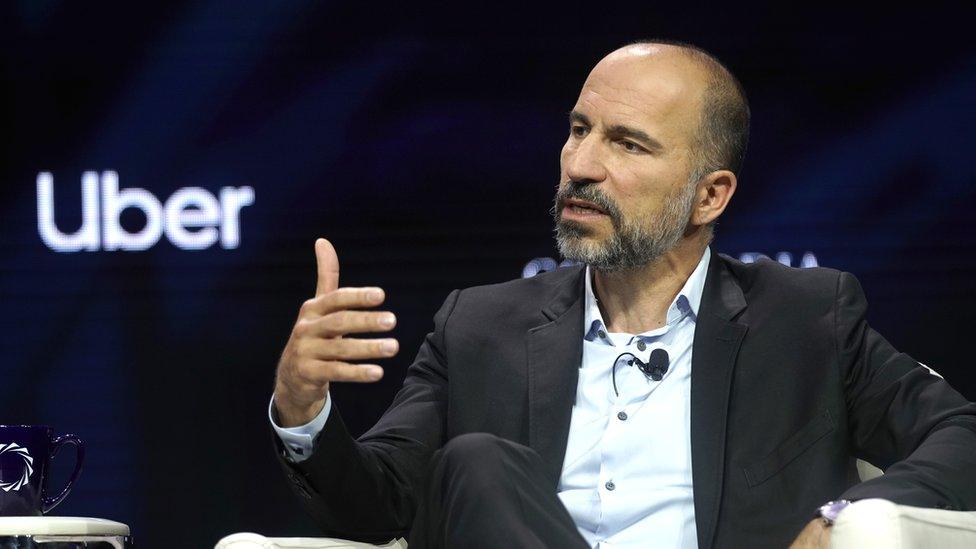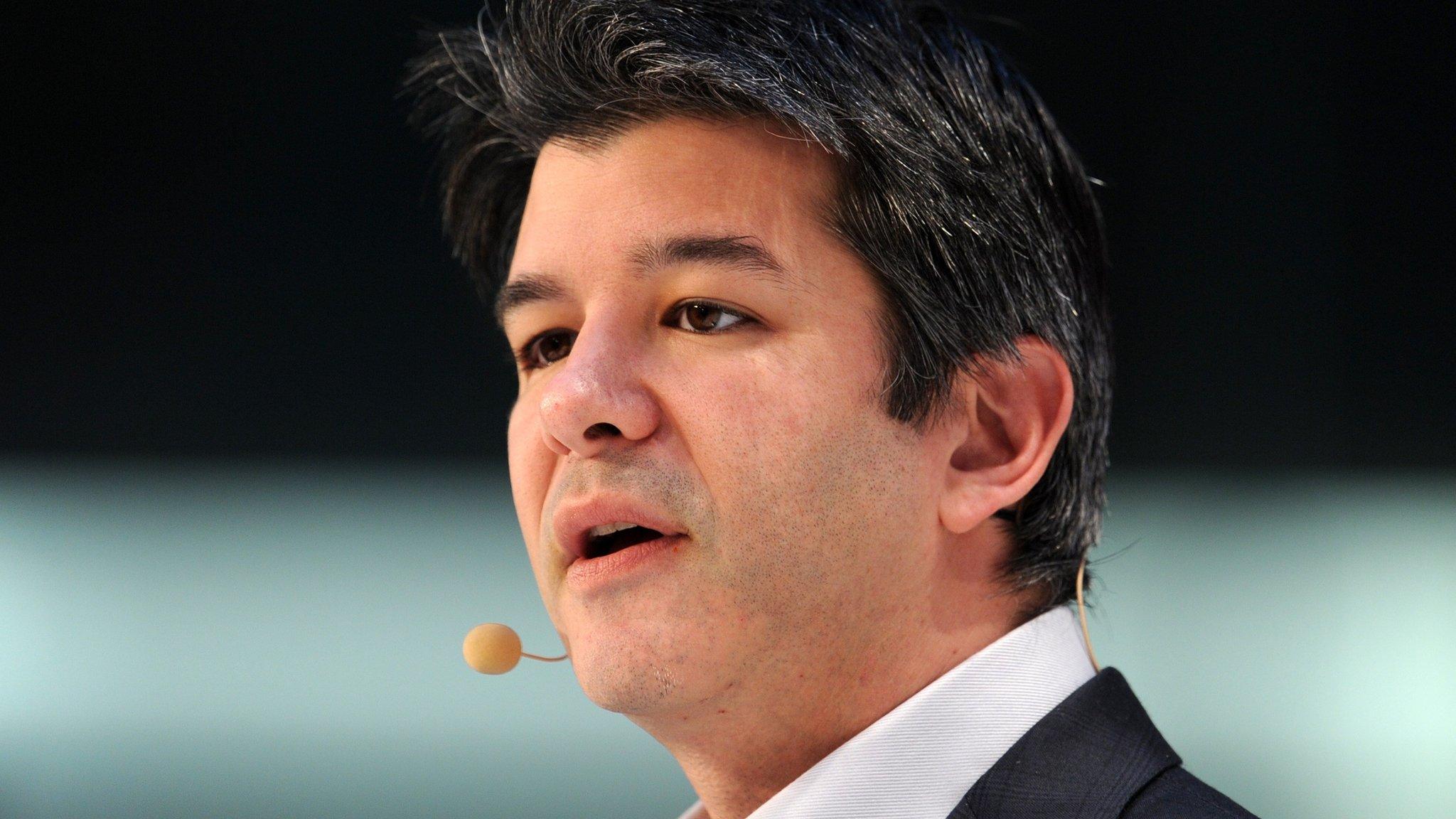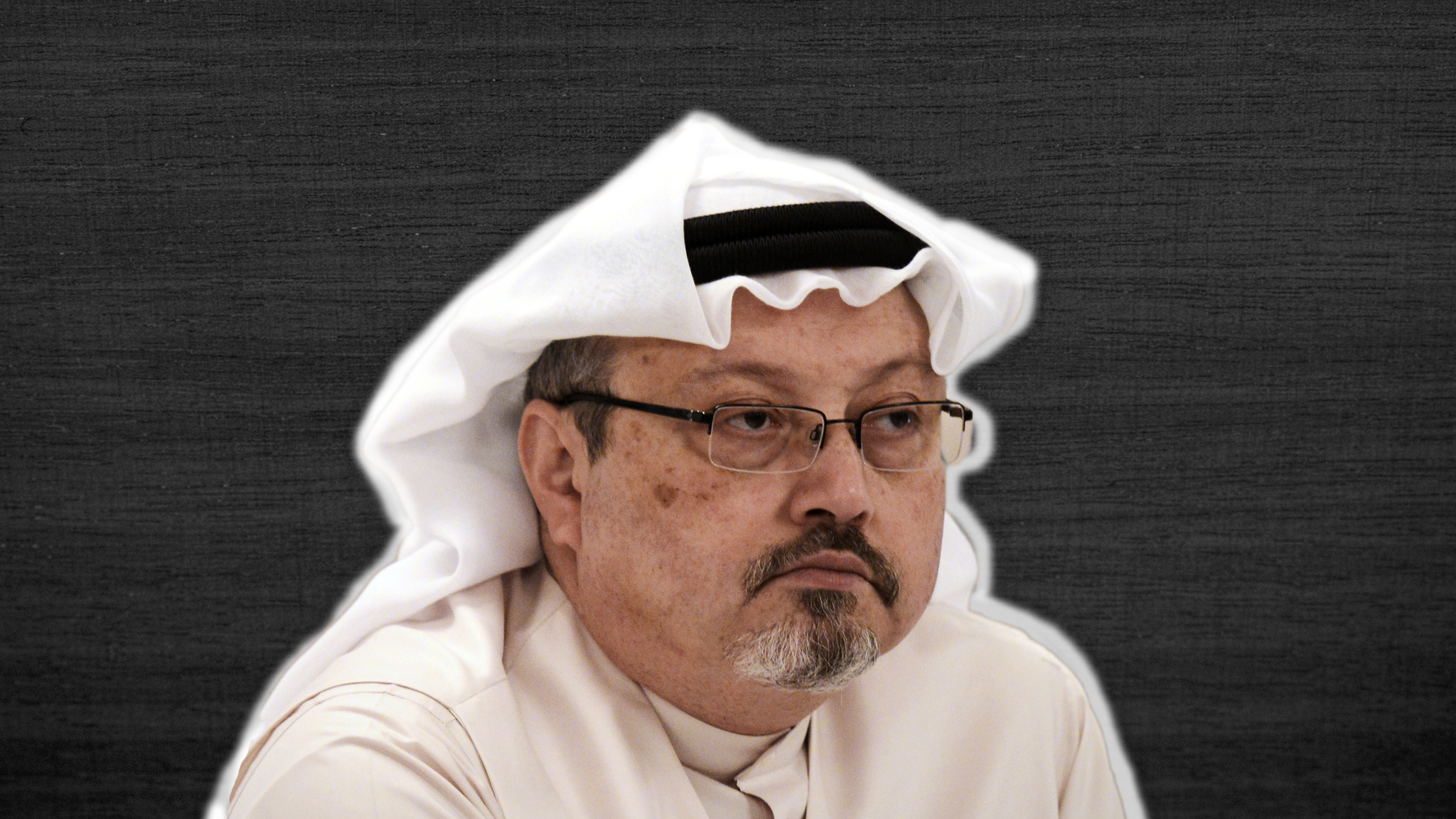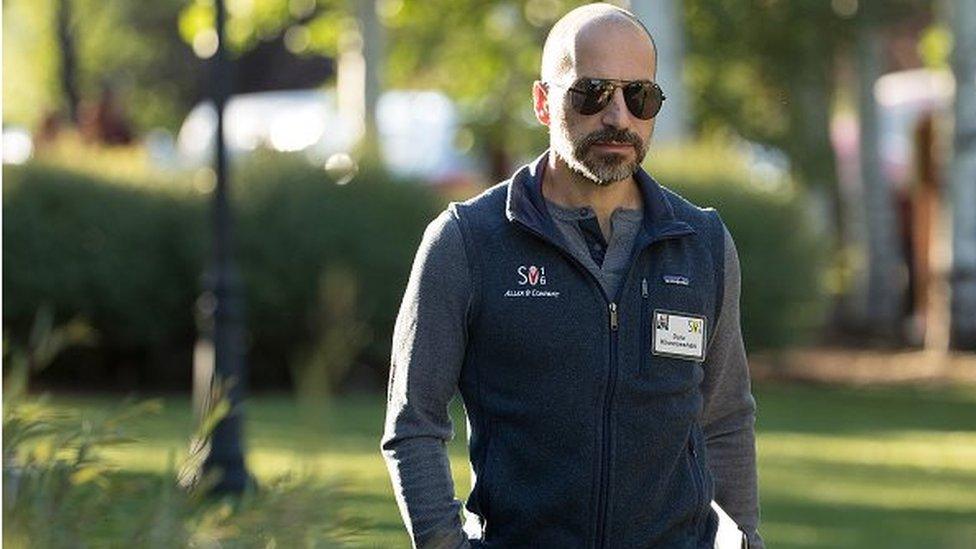Uber CEO calls Jamal Khashoggi murder 'serious mistake'
- Published

Dara Khosrowshahi later backtracked and said the comments were wrong
The chief executive of ride-hailing app Uber has called the murder of Saudi journalist Jamal Khashoggi "a mistake", comparing it to his firm's failings with self-driving cars.
Pressed on Saudi links with Uber in a TV interview, Dara Khosrowshahi said: "People make mistakes, it doesn't mean they can never be forgiven."
He later said the comments were wrong.
Khashoggi - a US resident and prominent Saudi critic - was killed in the kingdom's Istanbul consulate last year.
Saudi Arabia is Uber's fifth-largest shareholder and the head of its sovereign wealth fund is also on the company's board of directors.
Mr Khosrowshahi made the remarks during a discussion about Saudi Arabia's involvement in Khashoggi's murder, external as part of the series Axios on HBO. When pressed on whether a representative from Saudi Arabia should remain on Uber's board, he said: "I think that government said that they made a mistake."
He went on: "It's a serious mistake, we've made mistakes too, right, with self-driving and we stopped driving and we're recovering from that mistake."
He was referring to Uber's self-driving cars, one of which struck and killed a woman in 2018 when it "failed" to identify her as a pedestrian.
Allow X content?
This article contains content provided by X. We ask for your permission before anything is loaded, as they may be using cookies and other technologies. You may want to read X’s cookie policy, external and privacy policy, external before accepting. To view this content choose ‘accept and continue’.
Following the interview, Mr Khosrowshahi sent an email to Axios backtracking on his comments. "I said something in the moment that I do not believe," he wrote. "When it comes to Jamal Khashoggi, his murder was reprehensible and should not be forgotten or excused."
Mr Khosrowshahi was appointed CEO in 2017, after former chief executive Travis Kalanick resigned amid pressure from shareholders.
Mr Kalanick, Uber's billionaire co-founder, resigned after a spate of controversies at the firm. Issues included complaints from employees about a sexist and macho company culture and that accusations of sexual harassment were not taken seriously. He remains a member of the board of directors.
What happened to Jamal Khashoggi?
On 2 October 2018, Khashoggi entered the Saudi Arabia consulate in Istanbul, where he was murdered. Conflicting narratives emerged after his death over how he died and who was responsible.
Saudi officials claimed he was murdered in a "rogue operation" carried about by a team of agents, while others - including Turkish officials and the CIA - said the agents acted on orders from the highest levels of the Saudi government, including Crown Prince Mohammed bin Salman.
A UN expert earlier this year concluded that Khashoggi's death was "an extrajudicial execution" and that there was credible evidence" that the crown prince and other high-level officials were individually liable.
Jamal Khashoggi: What we know about the journalist's disappearance and death
- Published21 June 2017

- Published24 February 2021

- Published30 August 2017
